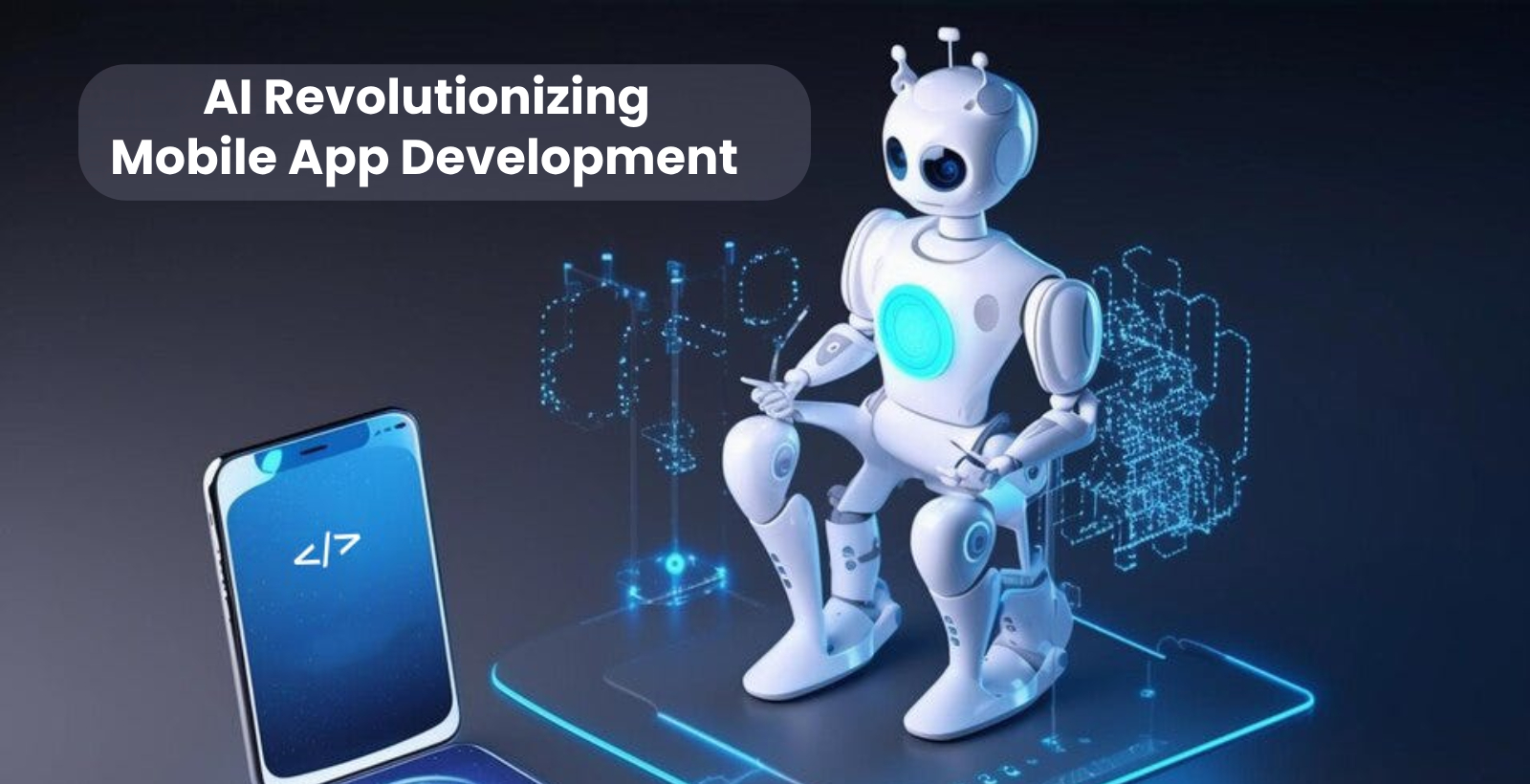How AI is Revolutionizing Mobile App Development
 Sofia Murphy
Sofia Murphy
Artificial Intelligence (AI) has become a transformative force across various industries, enhancing efficiency, personalizing experiences, and driving innovation. In the realm of mobile app development, AI is not just a buzzword but a revolutionary tool reshaping how apps are designed, developed, and experienced. This blog delves into how AI is revolutionizing mobile app development, exploring its impact on personalization, user experience, development processes, analytics, security, and the challenges it brings.
The Role of AI in Mobile App Development
AI encompasses technologies such as machine learning, natural language processing (NLP), and computer vision, which enable machines to learn from data and make intelligent decisions. In mobile app development, AI is integrated to enhance various aspects of app functionality and user experience.
AI's benefits in mobile app development are multifaceted:
Efficiency: AI can automate routine tasks, reducing development time and costs.
Personalization: AI algorithms analyze user data to tailor experiences to individual preferences.
Predictive Analytics: AI can predict user behavior and trends, informing app design and updates.
AI-Driven App Personalization
One of the most significant impacts of AI in mobile apps is personalization. AI algorithms analyze vast amounts of user data, including behavior patterns, preferences, and interactions, to deliver tailored content and recommendations.
For example:
Netflix uses AI to recommend movies and TV shows based on user viewing history and preferences.
Spotify leverages AI to curate personalized playlists and music recommendations.
Personalization driven by AI enhances user engagement by providing relevant content, improving satisfaction, and fostering loyalty. According to a report by Epsilon, 80% of consumers are more likely to engage with brands that offer personalized experiences.
Enhanced User Experience with AI
AI significantly improves user experience through various features:
AI-Powered Chatbots and Virtual Assistants: These tools provide real-time customer support and can handle a wide range of queries, enhancing user interaction. Examples include Apple's Siri and Google Assistant.
Predictive Text and Voice Recognition: AI-driven predictive text and voice recognition features streamline user input, making interactions faster and more intuitive. Google’s Gboard and Apple’s keyboard are prime examples.
Visual and Voice Search: AI enables apps to process and understand images and voice commands, allowing users to search for information or perform actions using natural language or visual inputs.
These AI-driven features enhance user interaction, making apps more intuitive, responsive, and user-friendly.
AI in App Development Processes
AI also plays a crucial role in optimizing the app development process itself:
Automated Testing: AI tools can conduct automated testing, identify bugs, and suggest fixes, which accelerates the development cycle and improves app quality. Tools like Testim and Appium use AI for these purposes.
Code Optimization: AI can assist in writing and optimizing code, reducing manual errors and improving performance. Platforms like Codex by OpenAI can generate code snippets based on natural language prompts.
Predictive Development: AI can predict potential issues and recommend solutions, aiding developers in creating more robust and efficient applications.
AI's ability to streamline development processes results in faster time-to-market and higher-quality apps.
AI for Advanced Analytics and Insights
AI’s capabilities extend to advanced analytics, providing valuable insights into user behavior and app performance:
User Behavior Analysis: AI analyzes user interactions to identify patterns and preferences, enabling developers to make data-driven decisions for app enhancements. Tools like Mixpanel and Amplitude leverage AI for deep analytics.
Predictive Analytics: AI predicts future trends and user needs, guiding app updates and feature developments. For instance, AI can forecast user churn and suggest retention strategies.
Case Studies: Companies like Uber use AI to analyze ride patterns and optimize routes, while social media platforms like Facebook utilize AI for ad targeting and user engagement.
These AI-driven analytics help businesses understand their users better and make informed decisions to improve app performance and user satisfaction.
AI and Mobile App Security
AI enhances mobile app security through advanced threat detection and prevention mechanisms:
Threat Detection: AI algorithms can identify unusual patterns and potential security breaches, such as malware or phishing attacks. AI-powered security tools like Appdome and Zimperium provide real-time threat analysis.
AI-Powered Authentication: Facial recognition, fingerprint scanning, and other biometric methods powered by AI improve app security by providing secure and convenient authentication options.
Fraud Prevention: AI can detect fraudulent activities by analyzing transaction patterns and user behavior, helping to prevent financial fraud and identity theft.
By incorporating AI into security measures, apps can offer better protection against evolving cyber threats.
Challenges and Considerations
Despite its benefits, AI in mobile app development comes with challenges:
Integration Complexity: Incorporating AI into apps requires specialized knowledge and resources, which can be complex and costly.
Data Privacy: AI relies on large amounts of data, raising concerns about user privacy and data protection. Developers must comply with regulations like GDPR and ensure transparent data practices.
Ethical Considerations: AI's decision-making processes can sometimes be opaque, leading to ethical concerns about bias and fairness. It’s crucial to implement AI responsibly and ensure ethical standards are met.
Addressing these challenges requires careful planning, ethical considerations, and adherence to best practices.
Conclusion
AI is undeniably revolutionizing mobile app development by enhancing personalization, improving user experiences, optimizing development processes, and bolstering security. As AI technology continues to evolve, its potential to further transform the industry is immense. Businesses that embrace AI in their app development strategies can gain a competitive edge, deliver exceptional user experiences, and drive innovation in the digital landscape.
Embracing AI not only positions businesses at the forefront of technological advancement but also ensures they are equipped to meet the ever-changing needs and expectations of their users.
Subscribe to my newsletter
Read articles from Sofia Murphy directly inside your inbox. Subscribe to the newsletter, and don't miss out.
Written by

Sofia Murphy
Sofia Murphy
I am Sofia Murphy, a mobile apps consultant. I voluntarily write blogs on mobile apps architecture, design, UI/UX, product engineering, and programming languages.